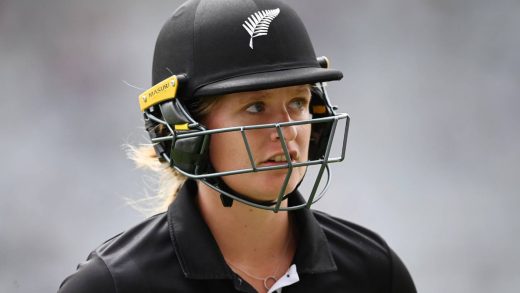Stephen Juba, who served an unprecedented 20 years as Winnipeg’s mayor from 1957 to 1977, may have been a poor administrator, was not a “team player,” had a big ego and took too much credit for several big civic projects. Or, so his critics alleged.
But much of this carping made little difference to a majority of Winnipeggers, who kept on voting for Juba, election after election. Charming, outgoing, with a lot of ideas (zany and otherwise) to improve life in the city — imagine if his proposed monorail had been built in the 1970s — he presented himself as a “man of the people,” and “the people” stood by him.
During his long tenure, Juba may have sided with the city’s business community on many issues, yet his legion of supporters perceived him as being anti-establishment, a person who innately grasped their problems and concerns.
Bill Rose/Winnipeg Free Press Archives Old City Hall (18) June 13, 1962 ‘Dig, Dig, Dig’ – And Steve Turns Sod For For New City Hall Mayor Stephen Juba grins sheepishly as he turns the first sod at the site of Winnipeg’s new $7 million cityhall. About 400 people were on hand Tuesday for the ceremony between Main and King Streets and William and James Avenues. Included were about 200 delegates to the 25th annual conference of the Canadian Federation of Mayors and Municipalities which is being held this week at the Royal Alexandra Hotel. Behind the mayor, left to right are: Aldermen Edith Tennant, Slaw Rebchuk, Donovan Swailes, Peter Taraska and William McGarva. fparchive
Bill Rose/Winnipeg Free Press Archives
Winnipeg mayor Stephen Juba (shown here at the sod-turning for the new city hall in 1962) was neither a gifted administrator nor a ‘team player’ on council, but his ‘man of the people’ demeanour made him popular with voters and kept him in office for two full decades.
For the upcoming Winnipeg municipal election, none of the 14 candidates could be regarded as true populists, though some may regard themselves as such. Certainly, the frontrunners — Glen Murray, Kevin Klein and Scott Gillingham —could be described as “establishment” candidates.
The fact is that successful and enduring populist politicians, especially moderate ones such as Juba, who hugged the middle of the political spectrum, have been rare in Canadian and American political history.
Among them, Andrew Jackson, U.S. president from 1829 to 1837, was regarded as a champion of the common man, despite owning slaves and being a lawyer and land speculator. More than a century later, John Diefenbaker, Canada’s prime minister from 1957 to 1963, a definite outsider even though he represented the Progressive Conservative Party, was arguably the country’s only true populist prime minister until he self-destructed.
Similarly, Tommy Douglas, the CCF premier of Saskatchewan from 1944 to 1961 and the leader of the NDP from 1961 to 1971, was an advocate for “ordinary” people.
Most other well-known figures regarded as populists were actually too left, too right or extreme. The list includes in the U.S., the notorious “King” Huey Long, the governor of Louisiana and a U.S. senator in the late 1920s and early ’30s, and the pro-segregationist George Wallace, who dominated Alabama gubernatorial politics for more than three decades.
And in Canada, William Aberhart, the Social Credit premier of Alberta from 1935 to 1942, who brilliantly used the radio to sell his message of religion, morality and quirky monetary policies, and Mitch Hepburn, the young premier of Ontario from 1934 to 1942, who improved health and education in the province yet was erratic and often mean-spirited.
At present, two of the leading populists in North America, at least according to their zealous followers, are Pierre Poilievre, who more than likely will become the new head of Canada’s Conservative Party on Sept. 10, and former U.S. president Donald Trump, who has been loudly hinting he plans to run for a second term in 2024 — assuming, of course, he is not indicted and convicted of any of the several crimes he is currently under investigation for committing.
While Poilievre exhibits some populist tendencies, his actions thus far have been contentious and volatile. As a former cabinet minister in Stephen Harper’s government, he has mainly appealed to the right wing of the party.
Poilievre has declared his intention to give back Canadians’ “control” of their lives, though he has never truly explained how or why Canadians don’t currently have control of their lives.
As for Trump, despite assertions to the contrary, he is no populist; rather he is an extremist and authoritarian, and in the words of Republican congresswoman Liz Cheney, “a domestic threat that we have never faced before.”
Trump has conned and cajoled millions of Americans, devotees of his cult, who share his dark and distorted vision of the U.S. and his racist appeals to a white America of the past. They heed his lie that the 2020 presidential election was stolen from him, and his nonsensical belief the Democratic Party is under the control of “radical socialists.”
Both parties are blinded by the rhetoric.
Many Canadian conservatives don’t see that if Poilievre does lead the party into the next election but does not shift to the middle-right of the spectrum — as Harper did — Justin Trudeau and the Liberals will almost certainly win at least another minority, if not a majority government.
And as for America’s Republican politicians, they have had numerous opportunities to rid themselves of Trump, yet instead they insist on standing by someone they know (or most of them, at any rate) to be immoral, unethical and corrupt. They could lead their millions of party members away from Trump and possibly in the near future control the House, Senate and White House.
But instead of leading their party members, they continue to follow them and Trump, thereby ensuring the current chaos will continue for a while longer.
Now & Then is a column in which historian Allan Levine puts the events of today in a historical context.


